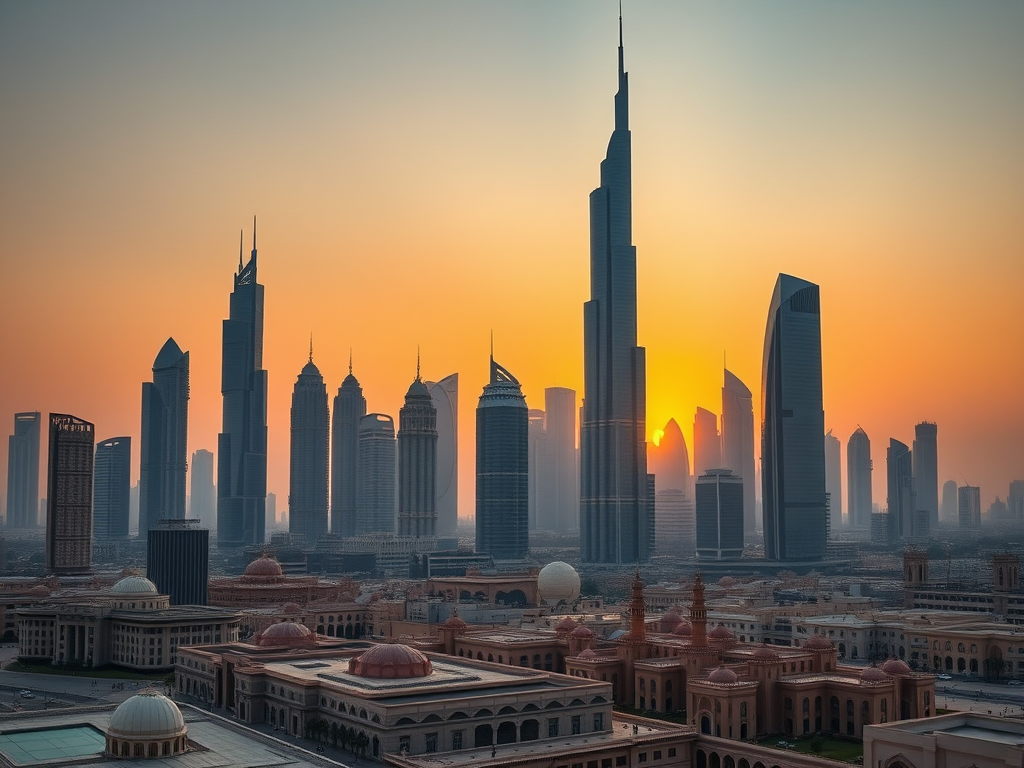Dubai’s real estate laws have undergone significant changes over the past few decades, transforming the emirate into a global hub for property investment. Initially characterized by loose regulations, the evolution of these laws has focused on increasing transparency, protecting investors, and enhancing the overall real estate market. This article will explore the key stages in the development of Dubai’s real estate legislation, highlighting important reforms and their implications for both local and international investors.
Early Days: Unregulated Market

In the early days of Dubai’s real estate sector, the market was largely unregulated, leading to a boom in speculative investments and construction projects. Foreign ownership was limited, and most transactions were straightforward but heavily skewed in favor of developers. The lack of structured legal frameworks often left investors vulnerable, as disputes regarding property rights and contracts were common. The rapid rise in property values attracted a diverse group of investors, but without legal protections, the market was fraught with risks. Consequently, the need for a comprehensive regulatory framework became increasingly evident as property transactions surged. The high stakes prompted government officials to consider reforms that would eventually reshape the entire landscape of Dubai’s real estate.
The Turning Point: Introduction of Property Laws

In 2002, the Dubai government introduced pivotal laws allowing foreign nationals to own property in designated areas. This monumental change marked a turning point for the real estate market, igniting a wave of interest from overseas investors. The new framework encouraged developers to launch ambitious projects, significantly expanding the skyline of Dubai. The introduction of the Property Registration Law served to formalize property ownership through a secure and organized registry, reducing the risks associated with transactions. Alongside this, the Law No. 7 of 2006 established the Real Estate Regulatory Authority (RERA), tasked with overseeing the market and ensuring compliance with regulations. The combination of these laws not only increased investor confidence but also attracted institutional investors eager to explore opportunities in the burgeoning market.
As the real estate market continued to expand, several key legislative frameworks were introduced to address emerging needs, including:
- Joint Ownership Law (2007): This law allowed multiple investors to co-own properties, fostering collective investment opportunities.
- Strata Law (2007): Providing a structure for managing and maintaining jointly owned properties, this law facilitated better property management.
- Leasehold Law: This law defined the rights and responsibilities of landlords and tenants, ensuring fair treatment and preventing disputes.
- Property Disposal Law (2010): Aimed at protecting buyers, this legislation established guidelines on the marketing and selling of off-plan properties.
- New Mortgage Law (2011): Adjusted terms for mortgage lending and enhanced consumer protection measures for homebuyers.
These frameworks have not merely reacted to changes in the market; they have proactively shaped the development of Dubai, laying down a foundation for sustainable real estate practices.
Recent Developments: Innovative Regulations and Smart Growth
The most recent developments in Dubai’s real estate laws reflect the emirate’s ambition to remain at the forefront of innovation and sustainability. In 2019, the Dubai Land Department launched the Property Technology (PropTech) Initiative, aimed at integrating advanced technology into property registration and management processes. This initiative included digital platforms for property transactions, which increased efficiency and transparency. Furthermore, the Real Estate Investment Trust (REIT) regulations, introduced to comply with international standards, have attracted institutional investment and facilitated diversification of investment portfolios. Current trends also prioritize sustainable building practices, with regulations incentivizing developers to utilize eco-friendly materials and energy-efficient technologies. These progressive measures not only bolster investor confidence but also align Dubai with global best practices established in mature property markets.
Future Outlook: Adaptation and Resilience
As Dubai continues to evolve, the real estate laws will likely adapt to address future challenges and opportunities. The emphasis on sustainability and smart city initiatives will shape upcoming regulations, ensuring that Dubai remains an attractive destination for investors. Key areas for future growth may include regulations related to artificial intelligence in real estate transactions, enhancing the security and efficiency of investments. Additionally, the legal framework surrounding smart property technology is expected to evolve, making way for innovative housing solutions in response to changing demographics. Furthermore, as global economies face uncertainty, Dubai’s strong regulatory framework is positioned to support resilience in the real estate market, helping to mitigate risks associated with economic fluctuations. Ultimately, the evolution of Dubai’s real estate laws reflects a broader vision of creating a market that is not only robust and lucrative but also sustainable and adaptable to future needs.
Итог
The evolution of Dubai’s real estate laws has transformed the emirate from an unregulated market to a well-structured, attractive destination for global investors. By implementing comprehensive legal frameworks, Dubai has enhanced transparency, ensured investor protection, and drawn substantial international interest. As the market continues to progress, ongoing reforms and innovations will play a crucial role in shaping the future of real estate in the emirate. In conclusion, Dubai’s journey through legislative evolution showcases its commitment to establishing a dynamic and resilient property market that responds to both current demands and future possibilities.
Часто задаваемые вопросы
- What are the key changes in Dubai’s property ownership laws?
In 2002, Dubai introduced laws allowing foreign nationals to own property in designated areas, a major shift that encouraged international investment. - How does the Real Estate Regulatory Authority (RERA) function?
RERA oversees the real estate market in Dubai, ensuring compliance with regulations and protecting the rights of buyers and investors. - What impact do recent laws have on sustainability in Dubai’s real estate sector?
Recent regulations incentivize sustainable building practices and technologies, aligning the emirate with global standards for eco-friendly development. - Are there any special provisions for co-owning properties in Dubai?
Yes, the Joint Ownership Law introduced in 2007 allows multiple investors to co-own properties, encouraging collective investment. - What future trends can we expect in Dubai’s real estate laws?
We can expect further developments in smart technology integration, sustainability regulations, and economic resilience measures in the real estate sector.
